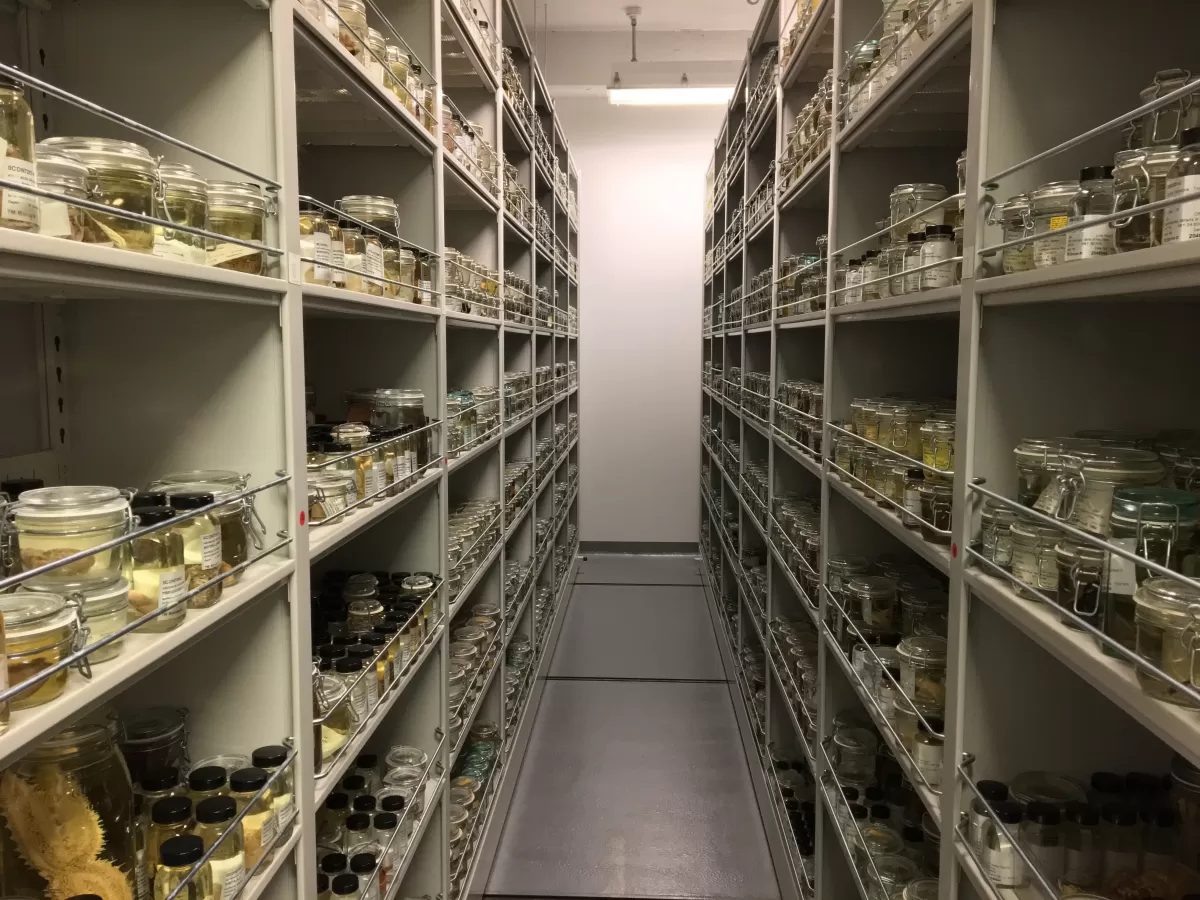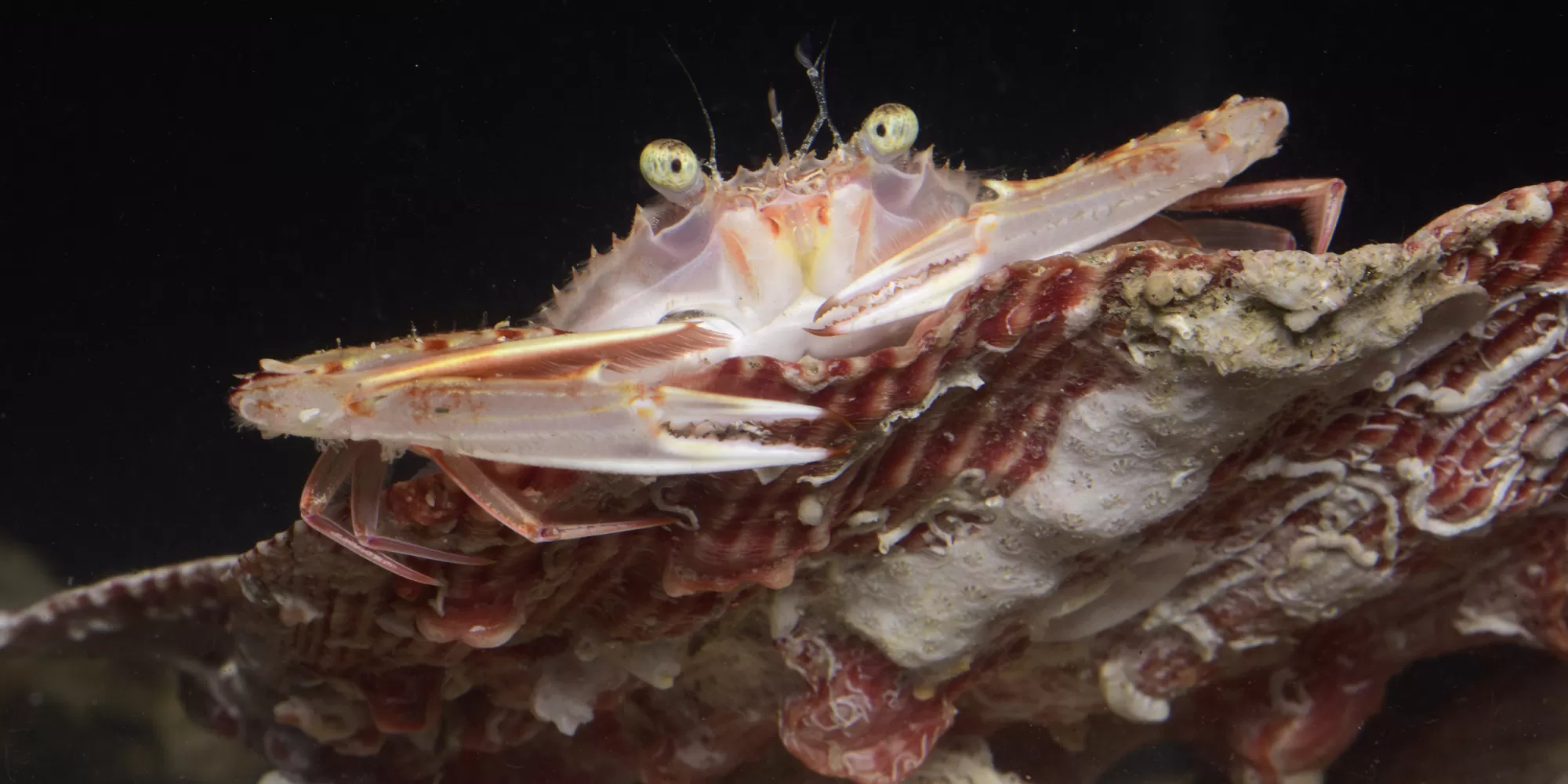
Search

Department of Invertebrate Zoology
National Cancer Institute
This project is part of an ongoing collection curation and archiving project funded through a contract National Institute of Health, National Cancer Institute (NCI) - Natural Products Branch. The NCI conducts many bioprospecting surveys in marine and terrestrial environments. The material collected from these bioprospecting surveys are screened for anticancer compounds that may prove useful for medicinal purposes. Marine specimens are kept at the Smithsonian Institution's Museum Support Center in Suitland, Maryland and housed within the Invertebrate Zoology department's Pod 5. There, the morphological vouchers of marine invertebrate specimens are curated to Smithsonian standards and stored with professional collection management.
By the 1970's, the NCI and many other programs had begun to fund expeditions to collect biological samples from marine environments all over the world. The institute receives roughly 1,000 specimens from the field every year and has screened thousands of marine extracts from these field collections. This massive amount of canvassing is crucial, as the production of valuable substances for the pharmaceutical industry is quite rare. However, the future for marine-derived products is looking very bright. The antiviral drugs Acyclovir and AZT can both be traced back to compounds isolated from a marine sponge are are both available on the market. Some products other than drugs such as artificial bone grafts derived from ground-up corals, infant formula containing essential fatty acids extracted from a marine microalga, and antiwrinkle creams containing compounds with anti-inflammatory properties extracted from soft corals are all available on the market.
